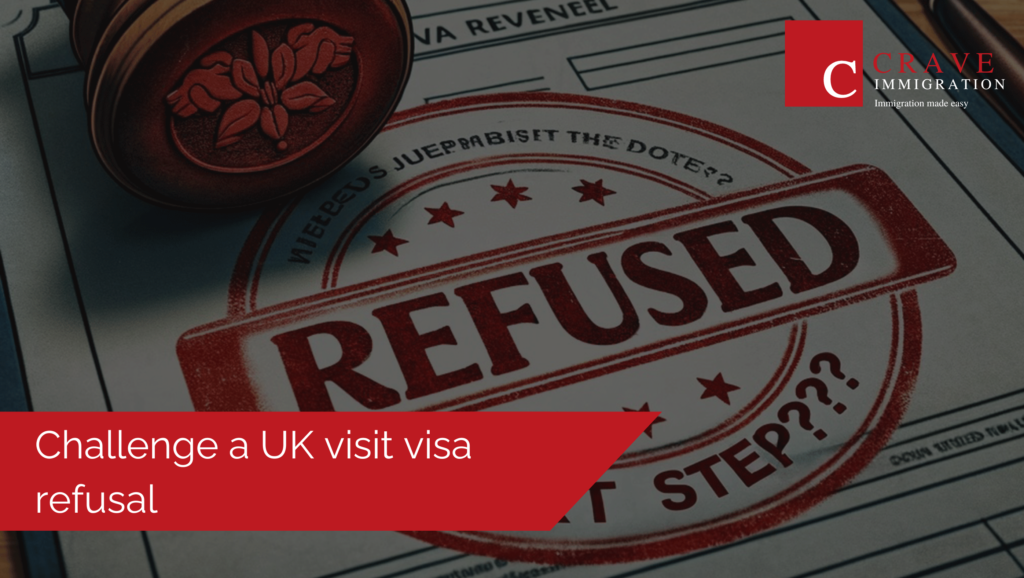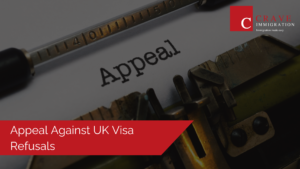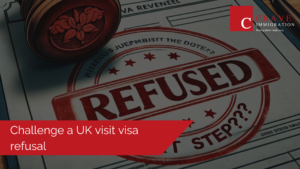Introduction
Feeling Overwhelmed by Your UK Visa Refusal?
Has your UK visit visa been refused, leaving you unsure of your next steps? It is important to thoroughly review the refusal letter to understand the specific reasons for the visa denial. Common reasons include insufficient supporting documentation, financial discrepancies, doubts about the visit’s purpose, and concerns about your intention to return home.
To effectively challenge a UK visit visa refusal, you can explore two primary legal pathways:
- Pre-Action Protocol (PAP); and
- Judicial Review (JR), which is a later step after PAP
Each method has specific steps and criteria that must be followed:
First Steps: Pre-Action Protocol
The term Pre-Action Protocol (PAP) might sound like legal jargon, especially if you're dealing with a visit visa refusal for the first time. However, don't worry; it's not as complicated as it sounds. It is simply a correspondence to the Home Office that outlines your intentions to initiate Judicial Review and serves to clarify the issues in dispute and see if the matter can be resolved without going to court.
Before any court action, a Pre-Action Protocol letter must be sent to the Home Office.It is a mandatory step before initiating a Judicial Review. The Home Office is expected to respond within a specific timeframe, generally 14 days. If the Home Office fails to respond, there could be negative implications later in the judicial proceedings, such as penalties related to legal costs.
Drafting your Pre-Action Protocol letter carefully is crucial. It should clearly outline why the decision was unreasonable and unlawful. It’s important that this be done by a professional, as a weak Pre-Action Protocol can result in the Home Office maintaining their original decision, leading to the need for a more complex and costly Judicial Review.
At Crave Immigration, we have helped numerous clients get their visit visa decisions overturned through Pre-Action Protocol. Contact us now before it's too late.
Taking It Further: What Is a Judicial Review?
Judicial Review is a process where you can challenge the lawfulness of a decision made by the Home Office. It is not only about disputing the decision itself but also the process by which the decision was made.
As discussed above, to start a Judicial Review, you must first engage in a Pre-Action Protocol, which involves formally communicating your grievances to the Home Office and giving them an opportunity to reconsider their decision. If they uphold the refusal or fail to respond satisfactorily, you can proceed with filing for a Judicial Review. This process must be initiated quickly, typically within three months of the visa refusal decision.
The steps includes:
- Submitting an application for permission to apply for Judicial Review, and and
- If the permission is granted, a hearing will be scheduled where a judge will review the case based on the original evidence submitted by you.
The outcomes can range from the decision being overturned, a directive to the Home Office to reconsider the application, or in some cases, financial compensation.
The success of a Judicial Review heavily depends on the precision of the legal arguments presented. This is not just about what was wrong, but about proving that the process was not followed as per legal standards. By approaching Judicial Review with a clear understanding and skilled legal support, you can significantly enhance your prospects of overturning a visa refusalcompensation.

Deciding for PAP and JR: What You Need to Know
The Entry Clearance Officer for the Home Office can make mistakes in considering the evidence submitted by you. They may refuse the decision unreasonably and/or not consider the evidence in full, making it unfair on you. Here’s when to choose each approach:
Pre-Action Protocol: Start here if you believe there’s a strong chance to overturn the decision based on an error or oversight.
Judicial Review: Proceed with this if your initial PAP does not result in a reversal of the decision and you need to challenge the legality of the decision-making process.
Need Professional Help? Contact Crave Immigration
Challenging a UK visit visa refusal can be complex. At Crave Immigration, our experienced team can guide you through the process, from drafting your Pre-Action Protocol letter to arranging your representations at a Judicial Review hearing. Contact us for a free consultation today to start your journey toward overturning your visa refusal.
FAQs
How long does the Home Office have to respond to a Pre-Action Protocol letter?
Ans: The Home Office is generally expected to respond within 14 days of receiving the Pre-Action Protocol letter
What happens if the Home Office does not respond to the Pre-Action Protocol letter?
Ans: If the Home Office fails to respond within the stipulated timeframe, it could negatively impact their position in any subsequent Judicial Review proceedings.
How quickly must I act to initiate a Judicial Review?
Ans: Judicial Review must be initiated promptly, typically within three months from the date of the visa refusal decision
Can I handle the Pre-Action Protocol and Judicial Review by myself?
Ans: While it is legally possible to handle these procedures yourself, it is highly advised to seek professional legal help. Immigration law can be complex, and the success of your challenge can heavily depend on how well the Pre-Action Protocol and Judicial Review are handled.
How can Crave Immigration help me?
Ans: Crave Immigration can assist you with drafting your Pre-Action Protocol letter and represent you in Judicial Review proceedings. Our experienced team has a track record of helping clients successfully challenge UK visit visa refusals.






